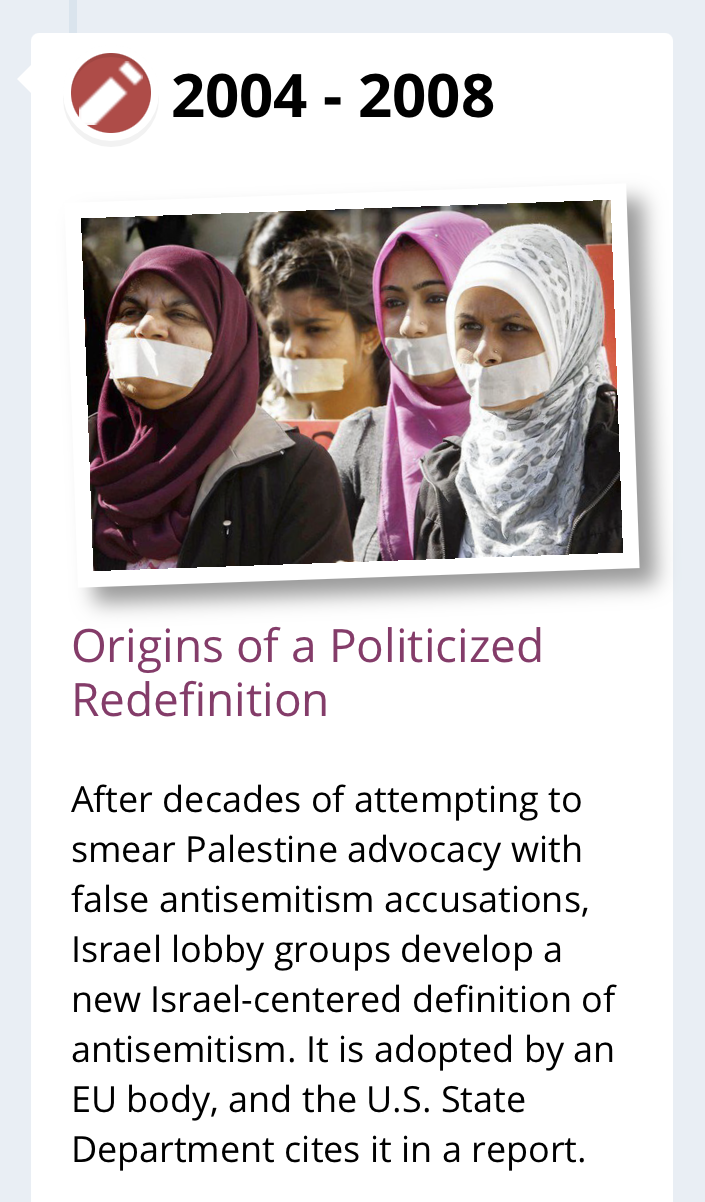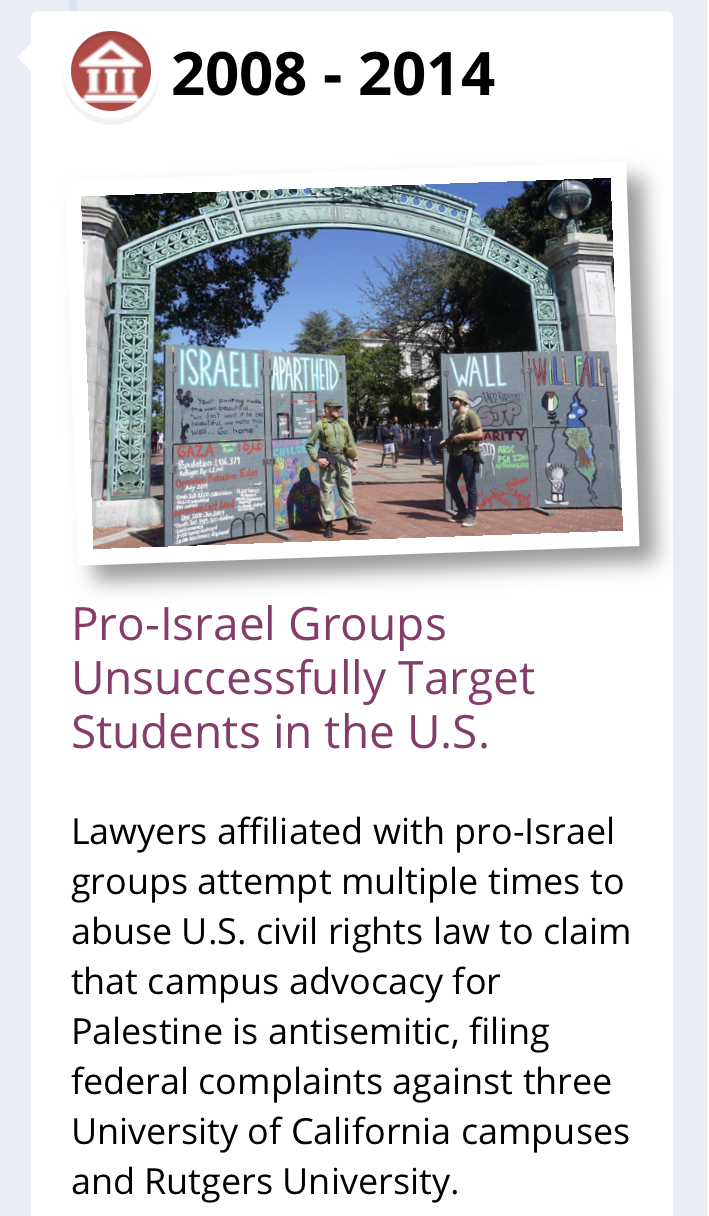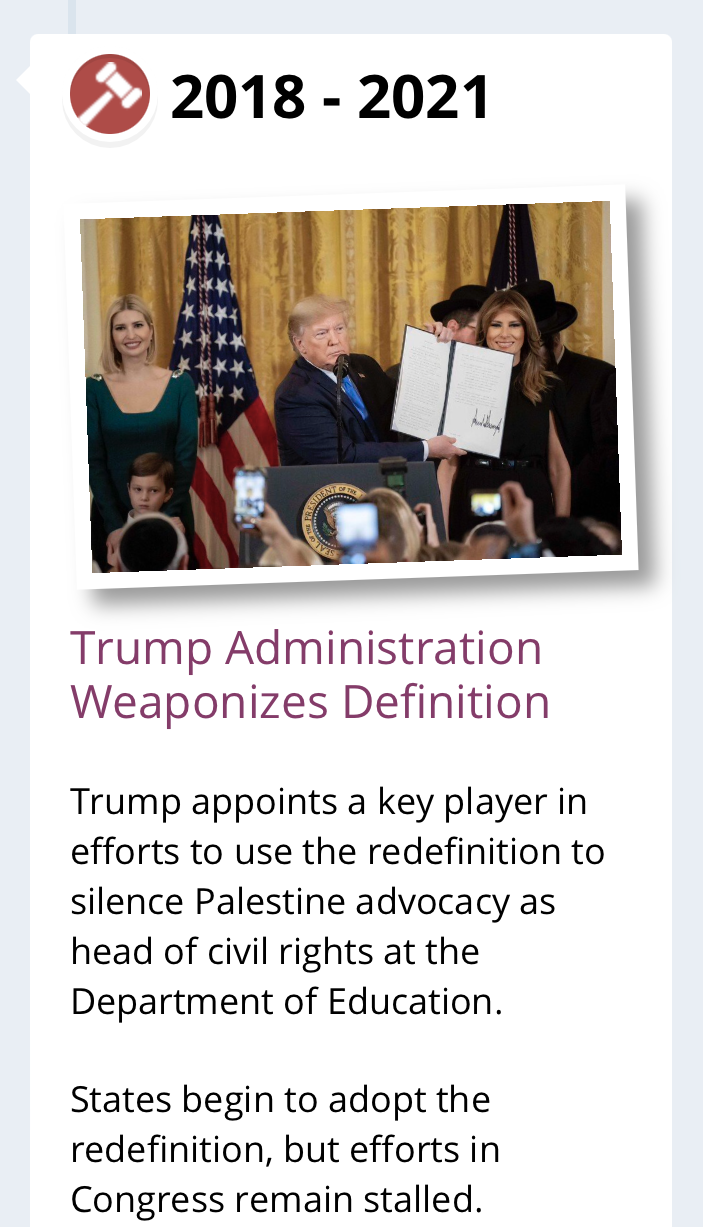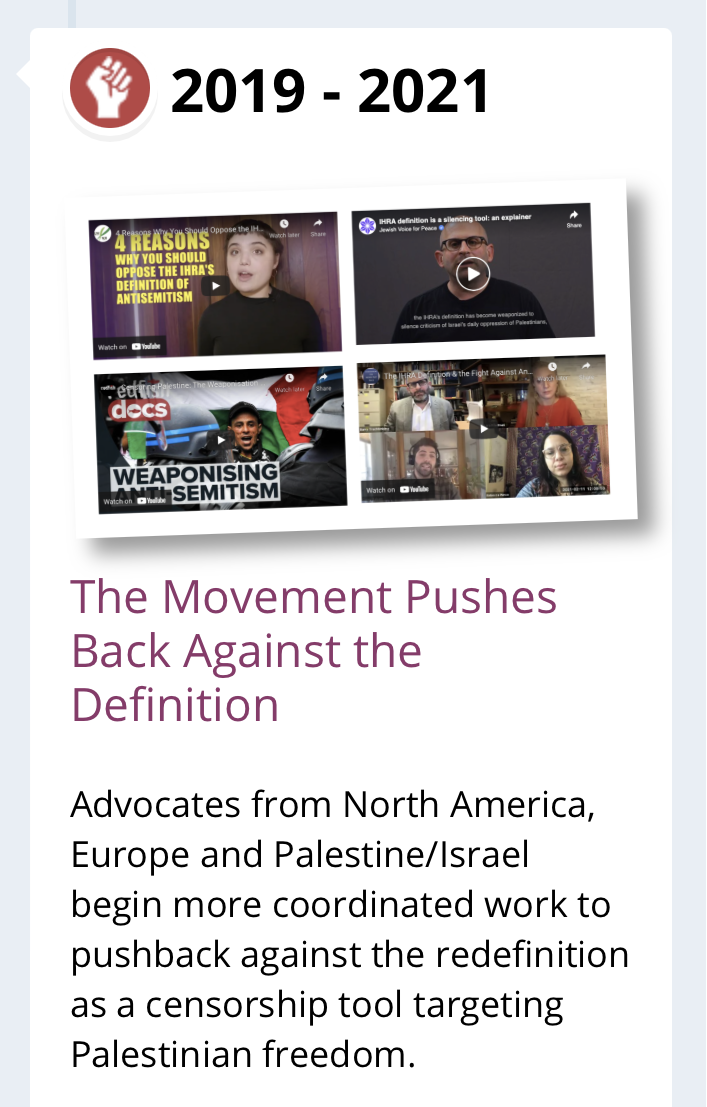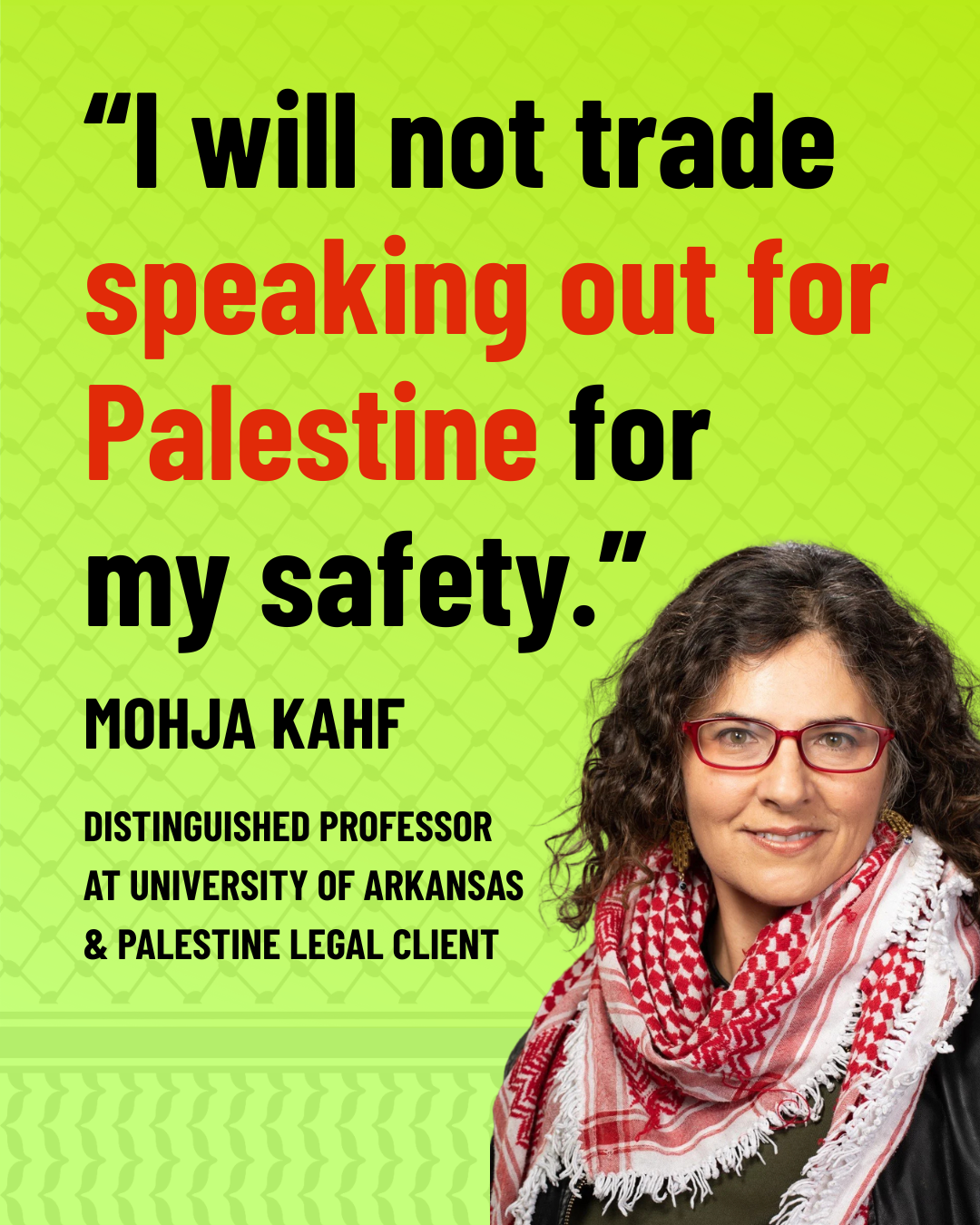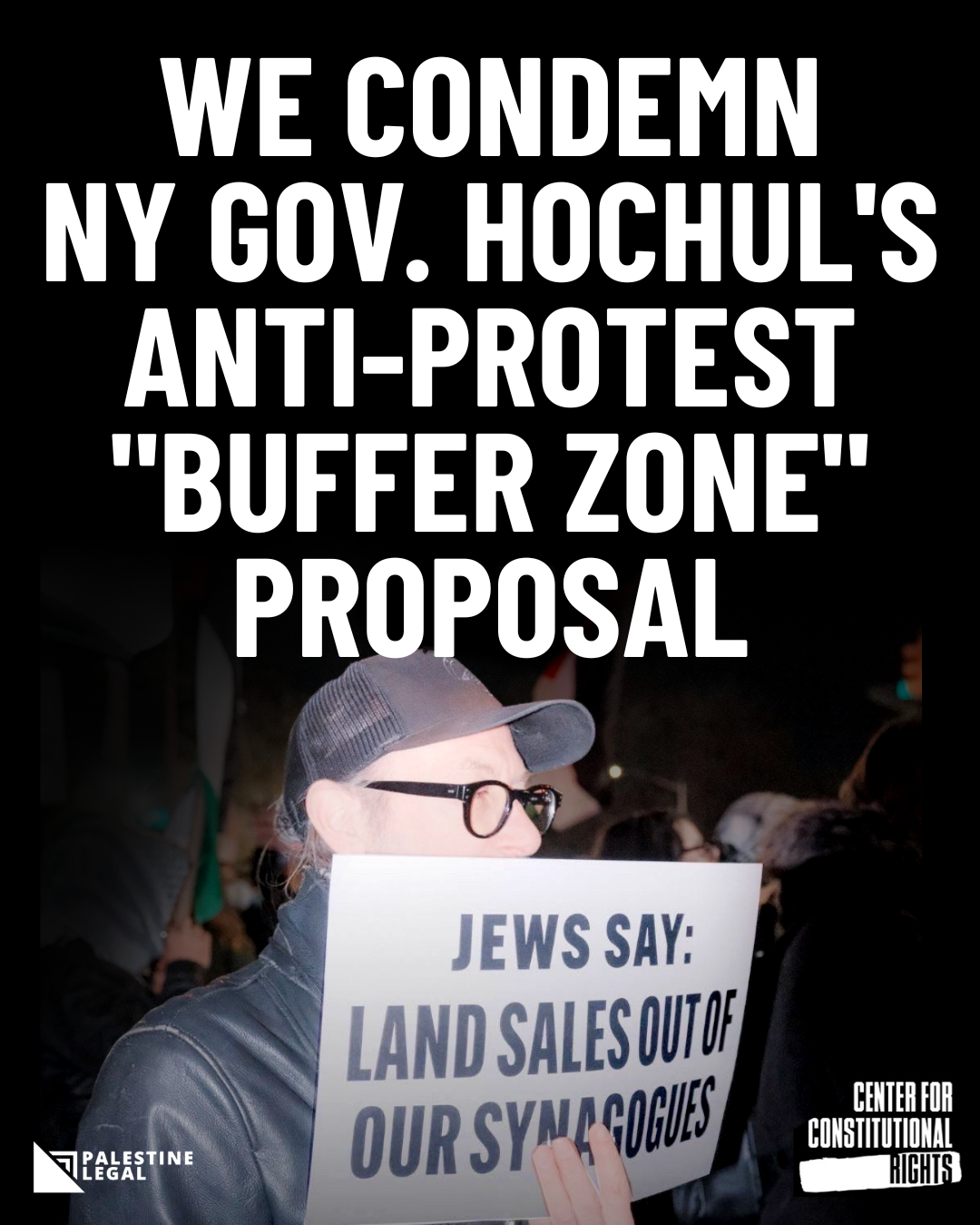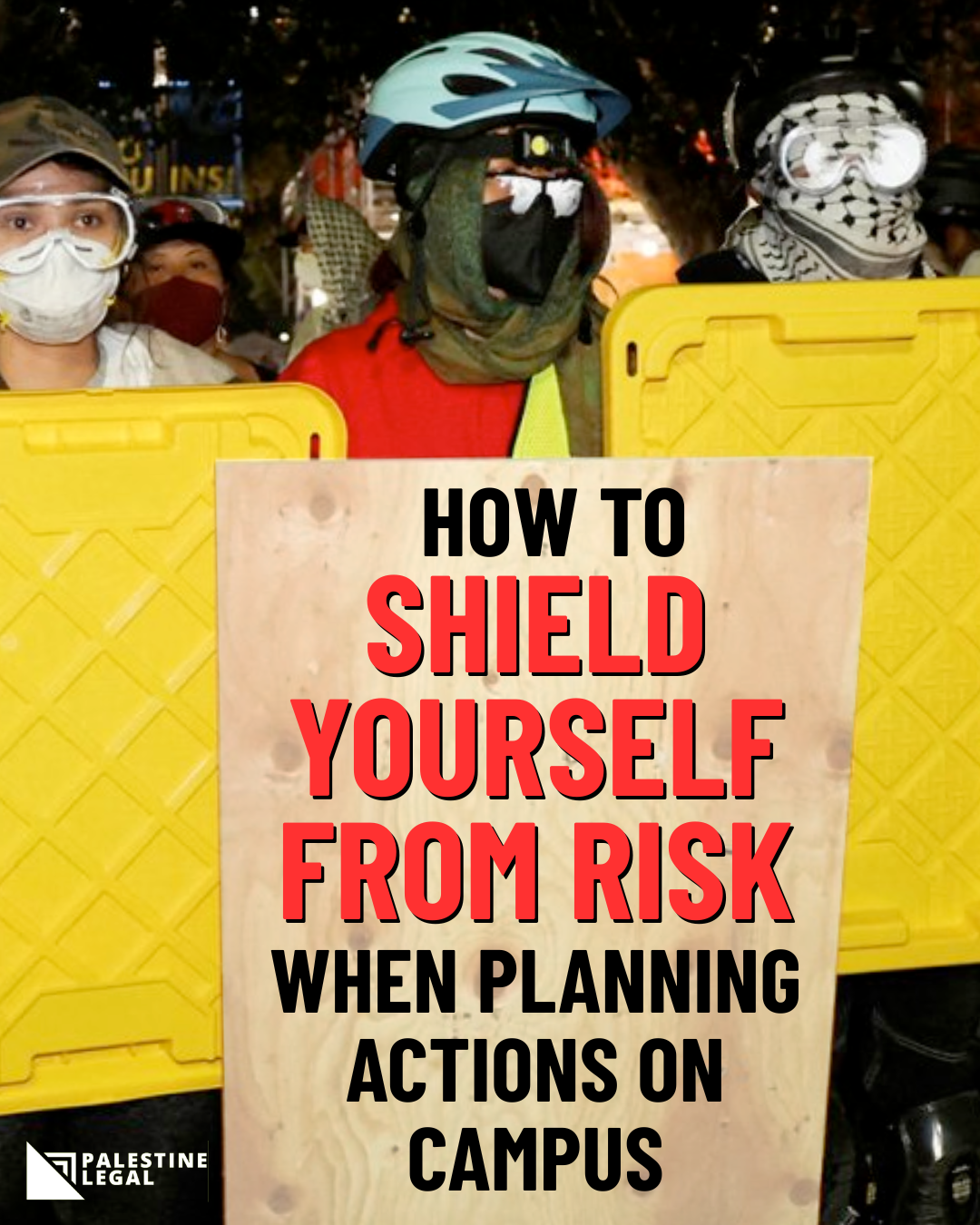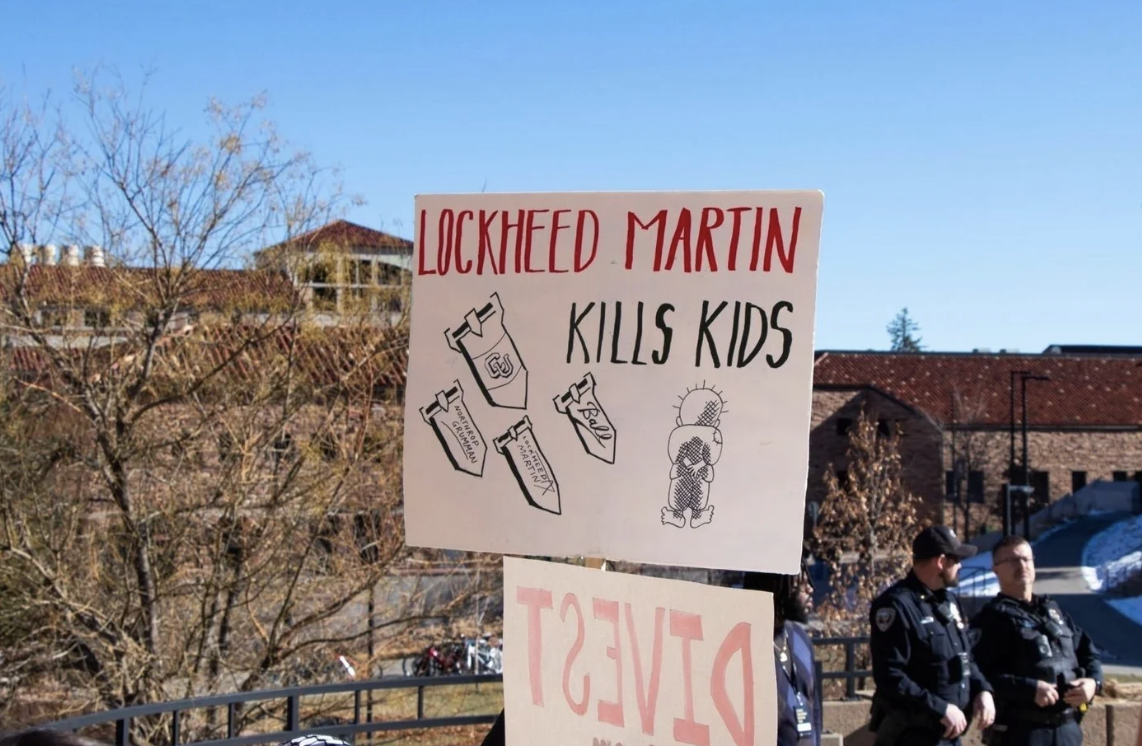New Timeline Tracks #DistortedDefinition and Efforts to Censor Palestine Advocacy
/Today, Palestine Legal launched a new, interactive resource visualizing two decades of efforts by Israel advocates to establish a politicized redefinition of antisemitism designed to silence advocacy for Palestinian freedom.
The new resource complements Palestine Legal’s existing backgrounder on efforts to redefine antisemitism to censor criticism of Israel.
These efforts culminated in the promotion of the International Holocaust Remembrance Alliance (IHRA) working definition, which Israel groups have pushed to codify in U.S. law, and which other groups are countering with new “definitions” and critiques.
The Distorted Definition resource features a timeline documenting major periods in the creation and use of the distorted definition:
The development of the distorted definition in the mid-2000s;
A period of unsuccessful efforts to target campus Palestine advocacy using elements of the definition between 2008-2014;
The failure of initial efforts to promote the definition in the U.S., as it gained traction in Europe from 2015-2018;
The Trump era and how the rightward shift in U.S. politics exacerbated the smearing and targeting of Palestine advocates;
Recent efforts by academics, activists and allies to push back against the definition.
The site also includes stories of the human impact of the redefinition on students, teachers, journalists and activists, as well as resources to learn more about the movement for Palestinian freedom and support organizing against the redefinition.
Geared towards activists, researchers, journalists and policymakers, the site documents one part of a widespread attack on the Palestine solidarity movement in the U.S.
Over 50 percent of the 1,707 incidents of suppression Palestine Legal responded to from 2014 to 2020 included false accusations of antisemitism.
“It is clear that students advocating to end a brutal military occupation, church groups calling for economic boycotts to end human rights abuses, and people marching for refugees’ right to return to their homes are engaged in human rights advocacy to be celebrated, not hateful or discriminatory behavior,” said Palestine Legal director Dima Khalidi. “We must expose and counter the false narrative that attempts to tar and silence human rights defenders in order to shield Israel from criticism and accountability.”
Background
In 2004, around the same time that Palestinian civil society was organizing its call for boycott, divestment and sanctions (BDS) campaigns for Palestinian human rights, Israel lobby groups and an Israeli politician crafted the framework for a redefinition of antisemitism that encompasses virtually all criticism of Israel.
Anti-Palestinian groups have attempted to entrench this redefinition through policy changes and legislation, fueling smear campaigns and censorship of Palestine advocates across the U.S. and around the world.
This month alone has seen at least three alternatives proposed to the flawed IHRA definition, in which seven out of eleven examples of contemporary antisemitism focus on Israel.
The most recent proposal, the Jerusalem Declaration on Antisemitism, dispels much of IHRA’s false equivalence between antisemitism and Palestine advocacy, but reinforces the structural problem of policing how Palestinians can speak about their oppression, requiring all criticism of Israel to be filtered through a lens of antisemitism.


